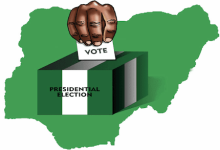
|
Getting your Trinity Audio player ready...
|
The Delta State Government has reportedly directed the police to arrest women deemed to be “indecently dressed,” invoking Section 16 of the so-called VAAP Law. But we must ask: who exactly defines indecent dressing? Is it religion? Is it culture? Or is it the continued policing of women under the guise of morality?
Before Christianity and Islam were imposed on us, our ancestors dressed in ways that suited their climate, needs, and customs. If those same traditional attires were worn today, they would be labelled “indecent” by the same institutions that have been whitewashed by colonial morality. We have internalised foreign ideologies so deeply that we now criminalize our own bodies, our own expressions, and our own people.
This law does not protect women— it degrades them. It violates their fundamental human rights as enshrined under Chapter 4 of the Nigerian Constitution, including the right to dignity, privacy, and expression. Dressing is a form of expression. Criminalising women’s clothing choices is not only unconstitutional, it is dangerous. It reeks of rape culture, where the burden of violence is shifted from perpetrators to victims, where how a woman dresses becomes an invitation to harass, assault, or dehumanise her.
This is not law enforcement. This is control. This is patriarchal policing dressed up as public morality.
Let’s be clear: the Nigeria Police Force is not a morality task force. Their duty is to protect citizens—not to police women’s bodies. At a time when Delta State battles rising insecurity, youth unemployment, kidnappings, and widespread corruption, this fixation on women’s dressing is not just a misplacement of priorities – it is an act of state-sponsored misogyny.
What kind of society prioritises punishing women for wearing shorts while leaving criminals to roam free? What message are we sending when we threaten women with arrest or community service simply for choosing how to express themselves?
To the Delta State Police, we ask: is it your duty to uphold public safety or to uphold patriarchal control? When will we stop passing off oppression as law?
When will we stop criminalising women and start criminalising the real crimes?






